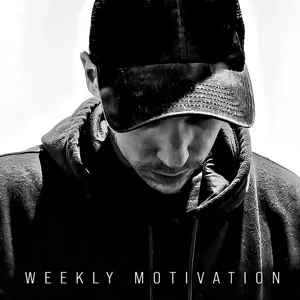Podcast Summary
Aspiring without attachment: Pursue dreams with commitment and peace, avoiding over-attachment and its pitfalls, to live with disappointment and move forward peacefully.
Aspiring without attachment means pursuing our dreams with commitment and peace. While it's natural to be attached to our goals, becoming overly fixated can lead to stress, insistence, and even paralysis. Aspiring without attachment allows us to maintain a fundamental peacefulness with whatever the result may be, enabling us to live with disappointment and move forward without being disturbed in our core being. This approach can help us avoid the pitfalls of over-attachment, such as fear of failure and the resulting paralysis by analysis. Instead, we can engage with our aspirations in a more grounded way, focusing on our experience rather than abstract concepts, and pursuing our goals with passion while maintaining a sense of inner peace.
Aspiring without attachment for long-term success: Instead of striving with stress and exhaustion, aim for a balanced and sustainable approach to goal-setting for long-term success
While pursuing goals, many people experience suffering and stress, which can lead to a sense of contraction, fear, anxiety, and exhaustion. This ideology of heroism, where stress and exhaustion are seen as necessary for success, can distract us from recognizing how our efforts are exploited by larger systems and can even come at a personal cost. Instead, we can aspire without attachment to fully commit to our goals without the strain and pressure that often comes with them. This not only allows us to enjoy the personal benefits of the experience, but also sets us up for long-term success. As Sir Richard Branson and Oprah Winfrey, among others, have shown, even the highest aspirations can be approached with a sense of playfulness and lightheartedness. Short-term gains from pressing yourself too hard may be impressive, but long-term success is characterized by a more balanced and sustainable approach.
Focus on the process of pursuing goals for success and resilience: Aspiring without attachment leads to success and resilience by focusing on the process of learning and growing, rather than solely fixating on the outcome.
Aspiring without attachment can be achieved through a combination of doing the work and embracing a growth mindset. This means focusing on the process of pursuing your goals, such as learning and growing, rather than solely fixating on the desired outcome. Carol Dweck's research on this mindset has shown that learners who value process goals tend to be more successful and resilient, even if they don't achieve the specific result they were aiming for. Anne Forrest's long-term dedication to dancing is a great example of this approach. By maintaining a growth mindset and continuously improving, one can find honor and meaning in the journey towards their goals, regardless of the final outcome.
Reframe the game for success: By shifting our focus to aspects within our control, we can increase chances of success and find greater satisfaction in the process.
Redefining the terms of a competition or situation can greatly impact our ability to succeed and feel fulfilled. When we find ourselves at a disadvantage or facing seemingly insurmountable odds, it can be helpful to shift our perspective and focus on aspects of the experience that are within our control. For instance, in dancing or chess, instead of fixating on winning a trophy or defeating an opponent, we can choose to focus on giving a strong performance, supporting our partner, or improving our skills. Similarly, in interpersonal conflicts, rather than trying to change another person's behavior, we can focus on speaking with an open heart, listening deeply, and clearly communicating our experiences and desires. By redefining the game, we can increase our chances of success and find greater satisfaction in the process.
Learning from Failure: Embrace failure as a natural part of life, focus on progress, and remember that the consequences are often minimal. Iterate, learn, and try again.
It's essential to embrace the idea that not winning or experiencing failure is a natural part of life. It's important to remember that most of the time, the consequences of failure are minimal, and we often exaggerate the negative outcomes in our minds. Failure does not mean the end, but rather an opportunity to learn and try again. As the author of a business book noted, if nine out of ten businesses fail, it means we need to start ten businesses. This perspective requires resilience and a willingness to take risks. A story about a college art class illustrates this concept well. The professor divided the class into two groups, with one group tasked with producing as many pots as possible, and the other with creating a perfect pot. The group producing many pots kept iterating and improving, while the group striving for perfection hardly made any progress. However, in the end, the group that focused on creating many pots had produced more pots with better quality than the perfectionist group. Embracing the idea that failure is a natural part of life and focusing on progress rather than perfection can lead to better outcomes and a more fulfilling experience.
Embrace the process and learn from mistakes: Focusing too much on small setbacks can hinder progress, but allowing room for errors and iterations can lead to better outcomes in the long run.
Having a strong attachment to every small step or signpost towards achieving a big goal may hinder progress. Instead, allowing room for mistakes and iterations can lead to better outcomes in the long run. This concept can be related to the experience of potters producing multiple pots, where those who focused on the process and learned from their mistakes produced better final pots. Pursuing big goals requires effort and potential setbacks, but the satisfaction and rewards that come with achieving them make it worthwhile. Additionally, relaxing the sense of self and observing the thoughts and self-referencing in our minds can help us approach our dreams with a more detached and growth-oriented mindset.
Understanding the impact of inner audience and self-referentiality on our aspirations: Recognize the role of inner audience and self-referentiality, but don't let it control our progress. Acknowledge external factors, focus on growth, and maintain a lighter attitude towards success and failure.
Our inner audience and self-referentiality play significant roles in our aspirations, particularly in career and work. We anticipate reactions and feelings based on how we imagine others perceiving us, which can either motivate us or hinder our progress. However, it's essential to recognize that many factors determining outcomes are out of our control. By not taking things too personally and acknowledging external influences, we reduce stress and increase the likelihood of success. Additionally, being less focused on impressing others and more focused on our own growth can lead to genuine admiration from those around us. Overall, embracing a lighter attitude towards our achievements and failures increases our chances of success in various aspects of life.
Letting go of self-judgment during growth stages: Aspire without attachment, focus on service or present moment, recognize other ways to approach goals, navigate creative process, lead to greater fulfillment and success.
Aspiring without attachment means letting go of self-judgment and focusing on service or the present moment, especially during the challenging stages of growth from incompetence to competence. This practice is essential for sustained mental health and moving past the "nadir" in the hero's journey when our understanding and taste outstrip our ability to produce the desired result. While a dogged work ethic has its place, it's essential not to overvalue it and recognize that there are other ways to approach our goals, such as with a lighter, more mindful perspective. This can help us navigate the ups and downs of the creative process and ultimately lead to greater fulfillment and success.
Let go and surrender to your purpose: Instead of forcing goals with attachment, let go and focus on purpose for sustained effort and growth
Instead of forcing ourselves to achieve our goals with excessive attachment, we should let go and surrender to our purpose. This means establishing our intention and feeling the deep sense of fulfillment it brings, then giving in to it and allowing it to guide us like a river or a wellspring. By doing so, we can sustain our efforts with passion and vigor, and even failure becomes a learning opportunity rather than a setback. Remember, having a growth mindset, setting achievable goals, and relaxing our sense of self are also important tactics for aspiring without attachment. So, let go of obstacles and focus on your highest aspirations and heartfelt longings, and let them live you into each day.




